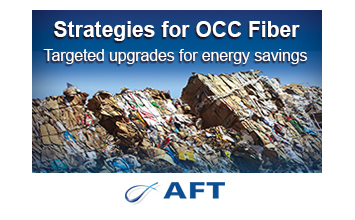December 18, 2023 – The Pas, Manitoba - The Government of Canada is committed to protecting the health, safety, and environment of Canadians. Environment and Climate Change Canada enforces the laws that protect Canada’s air, water, and natural environment, and it takes pollution incidents and threats to the environment seriously.
On December 15, 2023, Canadian Kraft Paper Industries Limited was ordered to pay a $1 million fine after pleading guilty at the Provincial Court of Manitoba to one charge under the federal Fisheries Act, one of the largest environmental fines in Manitoba history. The charges stemmed from a February 2019 pipe leak at Canadian Kraft Paper Industries Limited’s pulp and paper mill in The Pas, Manitoba. The leak resulted in the release of 23,000 litres of black liquor, a by-product of the manufacturing process, into Canadian Kraft Paper Industries Limited’s mill effluent treatment system. Environment and Climate Change Canada enforcement officers responded and collected samples. Through a subsequent investigation, they determined that over the course of six days, close to 181 million litres of acutely lethal effluent had been released from the effluent treatment system into the Saskatchewan River.
The deposit of acutely lethal effluent into fish-bearing waters violates a condition of the authorization to deposit effluent that is set out in subsection 6(5) of the Pulp and Paper Effluent Regulations and is a contravention of subsection 36(3) of the Fisheries Act.
In addition to the fine, Canadian Kraft Paper Industries Limited has also been ordered by the Court to conduct an independent environmental audit within 12 months of sentencing to review its operations and make recommendations regarding the implementation of best available technology and best practices to prevent future deleterious deposits. A report identifying the recommendations and actions the company will take to address them will be provided to Environment and Climate Change Canada.
The fine will be directed to the Government of Canada’s Environmental Damages Fund and used to support projects that have a positive impact on the environment.
As a result of this conviction, the company’s name will be added to the Environmental Offenders Registry. The Registry contains information on convictions of corporations registered for offences committed under certain federal environmental laws.
Environment and Climate Change Canada has created a free subscription service to help Canadians stay current with what the Government of Canada is doing to protect our natural environment.
Quick facts
-
Environment and Climate Change Canada is responsible for the administration and enforcement of the pollution prevention provisions of the Fisheries Act.
-
A key provision in the pollution prevention provisions is subsection 36(3), which prohibits the deposit of deleterious substances into water frequented by fish, or to any place, under any conditions, where they may enter water frequented by fish.
-
The Pulp and Paper Effluent Regulations were developed under the Fisheries Act to manage threats of impaired water quality to fish, fish habitat, and to human health from fish consumption. They limit the deposit of harmful substances into fish-bearing waters by pulp and paper mills and prohibit deposits of effluents that are acutely lethal to fish.
-
Subsection 6(5) of the Pulp and Paper Effluent Regulations does not allow the deposit of effluent when the effluent is acutely lethal to fish.
-
The Saskatchewan River is water frequented by fish, as defined under the Fisheries Act. The river contains many species of fish, including Lake Sturgeon, which are assessed by the Committee on the Status of Endangered Wildlife in Canada as endangered. Created in 1995, the Environmental Damages Fund is a Government of Canada program administered by Environment and Climate Change Canada. The Fund helps ensure that court-awarded penalties are used to repair environmental damage or benefit the environment. The Fund receives and redirects the money from court penalties and settlements and aims to invest in areas where the environmental damage occurred.













